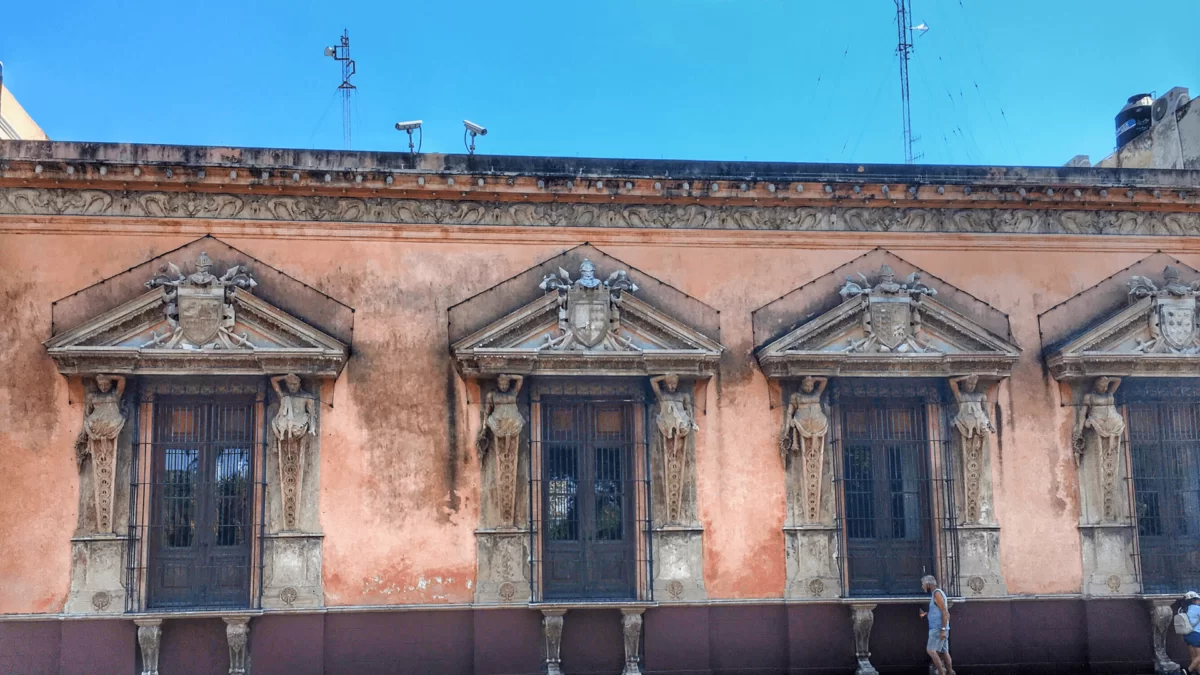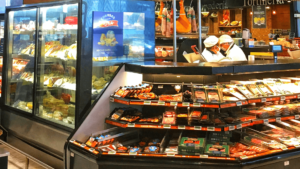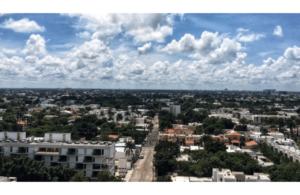Sharing is caring!
So much to learn and so little time! Personal opinions, conflicting information, or lack thereof causes confusion and frustration. Do you feel like that when researching moving to Mérida? To date, I’ve helped more than 200 clients through tours, consultations, and supplying factual information. This post addresses the Top 20 Questions About Living in Mérida.
You can also follow me on Facebook to get answers to more questions here:
- Mérida Retirement Tours™ (for retiring, living, exploring, learning about Mérida)
- Life in Mérida: Visitor & Resident Resources
Now, let’s get to the top 20 questions about living in Mérida!
1 – Does it flood all over Mérida?
Yes, it does flood all over the city. However, certain areas do experience more flooding than others. Why? There is no city sewer system here. All water collects on the streets or in makeshift gutters that lead to nowhere. Once the sun comes out, the water tends to dissipate relatively quickly.
Now, let’s define what actual flooding is in Mérida. You’ll find streets with water over the curbs or collecting in low lying areas. Other times, tropical storms cause houses to flood from above when house maintenance is not up to par.
There were two gorgeous remodeled Colonial houses Angel and I rented in Centro. One of them had constant flooding in half a dozen areas due to poor roof maintenance. The other had poor roof maintenance as well as faulty drainage in the backyard. So, the house would flood inside from the roof in one area and from the back patio during storms.
Now, we live in the North (Montes de Ame) and our corner floods. However, we called the city who, after a year, came out and dug a makeshift gutter that helps tremendously.
2 – Why do I have to pay a double deposit when renting in Mérida?
Typically, in the U.S., a renter provides important information when filling out a rental application. Background checks, references, prior rental history, credit reports, and verification of income are all critical components of ensuring a renter is qualified. But, in Mérida, owners, landlords, and property managers don’t ask for these things.
Notably, renting to a foreigner can be risky for locals. Put yourself in their position and ask what would make you comfortable if renting to a foreigner. Therefore, a double deposit provides peace of mind in the event issues are found once a renter vacates the property. Issues include outstanding utility bills such as electricity, gas, water, trash, and internet services.
3 – Can I get a mortgage on a house in Mérida?
Under Mexican law, foreigners cannot own the property outright within the restricted zone. The restricted zone is defined as 50 km from the coastline and 100 km from a border. Due to its location, Mérida falls in the restricted zone. In order for a foreigner to legally own property within the restricted zone, the Mexican government created a trust called a fideicomiso.
Created for the benefit of a foreign buyer, the fideicomiso trust agreement is executed between a Mexican bank and the seller of property in the restricted zone. This type of trust is similar to trusts set up in the United States. However, in this type of trust, a Mexican bank must be designated as the trustee and, as such, has title to the property and is the owner of a record.
The bank, as trustee, buys the property for the foreigner with the fiduciary obligation to follow instructions given by the foreigner who is the trust beneficiary. The trust beneficiary retains and enjoys all the rights of ownership while the bank holds the title to the property. The trust entitles the foreigner to use, enjoy, and even sell or will the property that is held in trust.
However, due to the bank trust called a fideicomiso, it is difficult to impossible to obtain a mortgage in Mérida. This is another of the questions about living in Mérida.
4 – What is actually walking distance to markets and grocery stores?
Without a doubt, this preference is at the top of the list when people are visiting or looking to relocate to Mérida. BUT, what does walking distance to a market or grocery store really mean? To a local, walking distance can mean with a 20 minute walk in the blazing hot sun of summer.
At the same time, I don’t know many foreigners who would not melt after a 5 minute walk in Centro. Therefore, ask an Airbnb host or hostess if the property is within walking distance to a market. Then, I highly recommend asking them to send you the location of the market in comparison to where the property is located. Otherwise, the standard response is always yes.
5 – Is there Uber at the Mérida airport?
NO! Uber is not available at the airport. PLEASE, PLEASE do not take advice from Facebook groups that recommend walking a few feet down the drive of the airport so an Uber can pick you up. Not surprisingly, this is very bad advice. ALL ride platforms are prohibited from competing with taxis available for incoming flights and passengers at the airport.
I do NOT recommend doing this for two reasons:
1) Safety reasons, especially after dark.
2) Both YOU AND THE DRIVER can be subjected to a massive fine.
Please, do not put yourself or anyone else in this position. Keep in mind, you are a visitor here and it’s important to respect the rules. Additionally, the cost is still quite reasonable. Going to Centro costs between $180 mx to $220 mx (more for a van). When going further North, expect between $220 mx to $280 mx.
6 – How much money should I bring when visiting Mérida?
Mérida is a heavy cash destination. When purchasing items in retail stores, for restaurants or larger shops, accommodations, you can use a credit card. For street vendors, artisans, and local shops, cash is king.
Plan for about $500 USD in cash and use a credit card for the rest. I usually order pesos from my bank before leaving the US however banks or casas de cambio here will exchange your currency. Have your passport in hand. Each bank will have a limit on how much you can exchange.
7 – When is the best time to visit Mérida?
Actually, the best time to visit Mérida is when you are ready to. Many people tell you and, I agree, that is good to come during the worst times of the year – when it’s the hottest (May) or rainiest (September). Then, if you like Mérida when it’s hot or rainy, you’ll probably love it the rest of the year.
My research trip was in September and it was rainy, muggy, and mosquito filled. There are two things I hate most: mosquitoes and heat. But, I absolutely fell in love with everything Mérida. I returned in December because I had finally found my home. Many people have questions about living in Mérida and want to know the answer. However, this depends upon your schedule, travel flexibility, and what works best for you.
8 – Why don’t people use email in Mérida?
Unfortunately, email is not used in Mérida. At times, companies or individuals have an email address. But, you’ll have to remind them to check their email. Even when sending important documents such as contracts, quotes, and estimates, it’s WhatsApp. So, why don’t people use email? The only reason I’ve ever been given is that “WhatsApp is just easier”.
WhatsApp is probably number one and FB Messenger is popular too. Download the WhatsApp app and be sure you enter the correct digits to contact someone locally from a foreign phone number.
It will look like this: +52 then the number you are calling (be sure to add the +)
+52 999.192.6197, for example
9 – Am I responsible for repairs in my rental property?
First thing to remember about this question is you are a foreigner renting in a foreign country. Consequently, there are a plethora of differences. Who is responsible for repairs, whether large or small? Typically, the renter is responsible for any and all repairs. This is a detail that might be negotiated. However, I’ve yet to hear of a landlord that makes concessions.
The only time this could be an issue is when you have a large item that is old and has the potential for repair during the time you are in the property.
Think of these particular items:
- Mini-split (A/C) units
- Ceiling fans
- Garage doors
- Plumbing and/or water pressure pumps
- Electricity
- Pool equipment
- Water softener systems
Regardless of what you hear, contract terms are negotiable. Start with a formal contract, review it, then obtain professional advice on items that need clarification, negotiation, or alteration. When in doubt, have older items checked out in advance and have them covered in the contract as a CYA (Cover Your Ass). Better to be safe than sorry.
10 – Where do I go if I get sick in Mérida?
Mérida offers world-class medical services because of its superior infrastructure of facilities and professionals. Hospitals and clinics in Mérida provide a range of specialties comparable to Europe and North America. Doctors, consultants, highly-trained staff, surgery facilities, recovery rooms, clinical analysis laboratories, and additional dedicated treatment facilities are generally quite affordable compared to many other countries.
So, what happens if you get sick in Mérida? This is one of the great questions about living in Mérida.
I recommend going to the emergency room of Faro del Mayab in North Mérida. Ask for someone that speaks English and they will help you. This hospital is more like what we are accustomed to and by using this hospital it gives a sense of familiarity. If you are in Centro, you can do the same at EME Red across the street from Walmart. An emergency room visit will cost you approx $35 U.S.
11 – How easy is it to rent a car in Mérida?
It’s actually quite easy to rent a car here. But, a word of caution. I would not rent a car with any companies that are located at the Mérida airport. You’ll find well-known names such as Hertz, Budget, Alamo, and National. The prices are supposed to include insurance. Surprisingly (or not), sometimes you’ll find that once you arrive at the counter, the insurance price is 3 – 4 times the cost of the car.
When you have questions about living in Mérida and renting a car, my best advice is to rent from Mayan Drive, our rental car partner. Angel and I tried over 12 rental companies. We found that Mayan Drive stood out above the rest.
Contact Arturo Yah at +52 997.128.5438 for rates and more information.
Reasons we LOVE Mayan Drive:
- Availability and variety of cars including mini-vans and a passenger van
- Low deposits
- Customer perks when renting vans for the beach
- English spoken
- Car delivered and picked up at your location with a FULL tank of gas
- Insurance included in the rate
- Flexible long term rental agreement
12 – Where is the best place to stay in Mérida when I visit?
I highly recommend staying in Centro as this is the place where all the activity is. Access to Paseo de Montejo, Santa Lucia Park, and Plaza Grande gives a sense of the culture and vibrancy of this beautiful city. Not surprisingly, it is the heartbeat of the city. Yes, pricing in the North or futher outside the city may be more affordable. However, when you compare Uber costs and transportation time, it’s simply not worth it.
Additionally, there are many affordable and luxury hotels as well as AirBnb locations in and around Centro. I highly recommend staying somewhere central to truly experience the vibe, the culture, the gastronomy, and the people that make Mérida unique and unforgettable.
Another benefit of staying in Centro is that you’ll meet expats who can answer questions about living in Mérida. Being face to face with someone who is already here helps tremendously. More recommendations HERE.
13 – Should I open a Mexican bank account?
The answer is yes BUT Intercam is the only bank in Mérida where you can open an account on an FMM Tourist Permit or Tourist Visa as it is commonly referred to. Now, let me be perfectly clear. There are other banks where you can open an account on a tourist visa however you will also have to have a Mexican utility or cell phone bill in your name. This is where you will find the unique difference between Intercam and other banks.
For me and for many people, having a local bank in Mérida is more than important it’s a necessity.
You’ll need a Mexican bank account:
- when setting up utilities
- as part of a long term rental contract
- making transfers to pay for goods and services
- for a backup in case something happens to your primary debit card
14 – What does health insurance cost in Mérida?
Mexico has both public and private healthcare systems. Each system has its own doctors, pharmacies, and healthcare plans. Both of these operate independent of each other. While some expats opt to have local health insurance, the majority of them keep their current health insurance and travel back to the U.S.. Not surprisingly, health insurance in Mexico does not cover pre-existing conditions.
Additionally, you’ll quickly find out that insurance here has a deductible for each issue vs. a compouned deductible which we are accustomed to. By the time you add up possible deductible scenarios, you’ll quickly come to the conclusion what route is best for you health-wise and financially. Unfortunately, I did not qualify for health insurance here due to pre-existing conditions. However, I did receive a quote for the type of insurance I preferred. It was approx $8,000 U.S. annually. For my situation, I opted for an emergency/accident policy which costs me $600 U.S. annually.
Here are some typical “out of pocket” medical costs:
- In Mérida, an emergency room visit costs between $350 to $500 MXN or $15 to $25 US.
- A general doctor consult costs approximately $500 MXN or $25 US.
- While a specialist, think gynecologist or dermatologist, costs approximately $800 MXN or $40 US.
- However, in other private hospitals (good ones), this amount can double or triple.
15 – What is the maximum number of days I can stay on a visitor’s permit?
Each time you visit Mexico, you are required to fill out an FMM (Forma Migratoria Múltiple) form. This is a permit that allows tourists to enter and visit Mexico for a limited period of time up to 180 days. When you exit the country within the stated time frame, you surrender your FMM to the customs agent.
Until recently, 180 days were automatically given to visitors to Mexico. However, this is not the standard at this time.
To clarify, it is up to each individual customs agent to determine the length of your stay in Mérida. You may be given 7 days, 30 days or up to 180 days. 180 days is the maximum amount of time allowed.
16 – How hot does it get in Mérida?
Simply put, Mérida is hot with moderate to high humidity. Since Mérida is inland and has low elevation, it is typically a few degrees hotter than in neighboring coastal areas. Located in the northwest corner of the Yucatan Peninsula, you can expect to use your air conditioner for most of the year.
The temperature normally ranges between 63 F and 97 F; rarely dropping below the mid-50s or soaring above 103F.
May is the city’s hottest month with an average high of 97F and a low of 71F. Now that I live here, I’ve met many locals that tell me the weather in Mérida is mucho calor meaning very hot. And, it’s true.
But the real reason, the sun is so severe? Mérida is also close to the Tropic of Cancer so the sun feels more intense.
Combine the intensity of the sun with all the concrete in Centro and it’s a scorcher.
17 – Is Mérida safe?
In the words of Mayor Renán Barrera, “Mérida, the safest city in Mexico, has a citizen agenda that is an example to follow in matters of security and public order, thanks in large part to the work of our police corporations. If something distinguishes Mérida in terms of security, it is precisely the prevention actions of the municipal police corporation, as well as the high-quality human capital that integrates it, which forms the first link to build safe cities.”
It’s true that Mérida attracts a different and more sophisticated type of tourist different from beachy destinations. Because Mérida is not on a beach, many people come for the tranquility, arts, culture, food, and history. Because this is not widely known, it causes questions about living in Mérida.
Additionall, there is a large amount of police scattered throughout the city. The city of Mérida police force is strategically placed all over the city to support, guide, and mostly keep things under control. Extra police officers are added to the Centro (City Center) patrol beat to watch over tourists namely around banks, ATMs, restaurants, and transportation hubs to prepare for high-season which is October through March.
18 – What is the best way to get to Mérida?
Did you know you can fly directly into Mérida International Airport? Most people think they have to fly into Cancun and then take the bus or a small aircraft into Mérida. However, that’s just not the case.
With more than 2.5M passengers per year (incoming, outgoing, and transit), Manuel Crescencio Rejón International Airport is the nearest airport to Mérida Mexico. A small but modern airport, Manuel Crescencio Rejón International or MID is considered one of the medium-sized airports in Mexico.
Large airplanes such as the Boeing 747 and 777 fly in and out along with smaller aircraft like Boeing 737 and Airbus A320; both domestic and international. Located on the southern edge of the city, about 20 minutes by car or Uber, it is approximately 6 miles from the city center.
19 – Do I need a car if I live in North Mérida?
Yes, it’s true. I was one of the many people who think if you live in North Mérida that a car is necessary. After living in the north for only a few months, I realized this is absolutely NOT the case. I’m actually closer to the establishments I frequent including the grocery stores, Costco, my hairdresser, and even my nail salon. This is actually one of the most frequently asked questions about living in Mérida.
Typically, I go to Centro once or twice a week for various errands or to eat at some of my favorite restaurants. However, even when I did not have a car it was not an issue to Uber down the short 20 minute ride from my house to Santa Lucia park.
While I am within walking distance to grocery stores, Office Max, Home Depot, Walmart City Center, and several malls, in this heat I simply won’t do it. Therefore, I do walk when the weather is cooler.
20 – What is the difference between Centro and North Mérida?
Notabaly, Centro gets the most attention (and it should). This is the heartbeat of the city for activities, cultural events, art galleries, concerts, colonial homes in stages of remodel and disrepair, concentration of restaurants, artisanal shops, and more. It’s colorful, busy, eclectic, and has a vibe like no where else I’ve ever been. I think, in part, due to the Mayan infusion of wisdom. Most expats choose to live in Centro.
North Mérida has its own vibe: sleeker, more modern, wider streets, and quieter. Passing the Monumento a la Patria on Paseo de Montejo continuing to Prolongacion de Montejo, it’s easy to see the change pretty quickly. It’s like leaving one world and arriving at another. Families, Mexican nationals, locals, and a few expats (like me) live in North Mérida. I prefer it but it’s not for everyone.
Final Thoughts on Top 20 Questions About Living in Mérida
Whether it’s obvious or not, there’s something for everyone in Mérida. However, there are people who fall in love with it while others just don’t. There’s not much in the middle. Therefore, when people have questions about living in Mérida they tend to ask other expats on social media. Yes, this can be a good strategy but you have to experience for yourself.
At times, challenges are too great and expats leave for a variety of personal reasons including:
- cultural differences
- heat
- lack of resources
- unrealistic expectations
- language barrier
- trying to duplicate their American experience in a foreign country
- health issues
- family needs them back home
If you are considering a move to Mérida, here are a few recommendations:
- Start in Centro first to get a feel for the city and the wonderful culture and gastronomy.
- Stay in a hotel for at least a week before you rent an Airbnb.
- If considering long term, try short stays in Airbnbs around the city, both Centro and North Mérida.
Buena Suerte!










